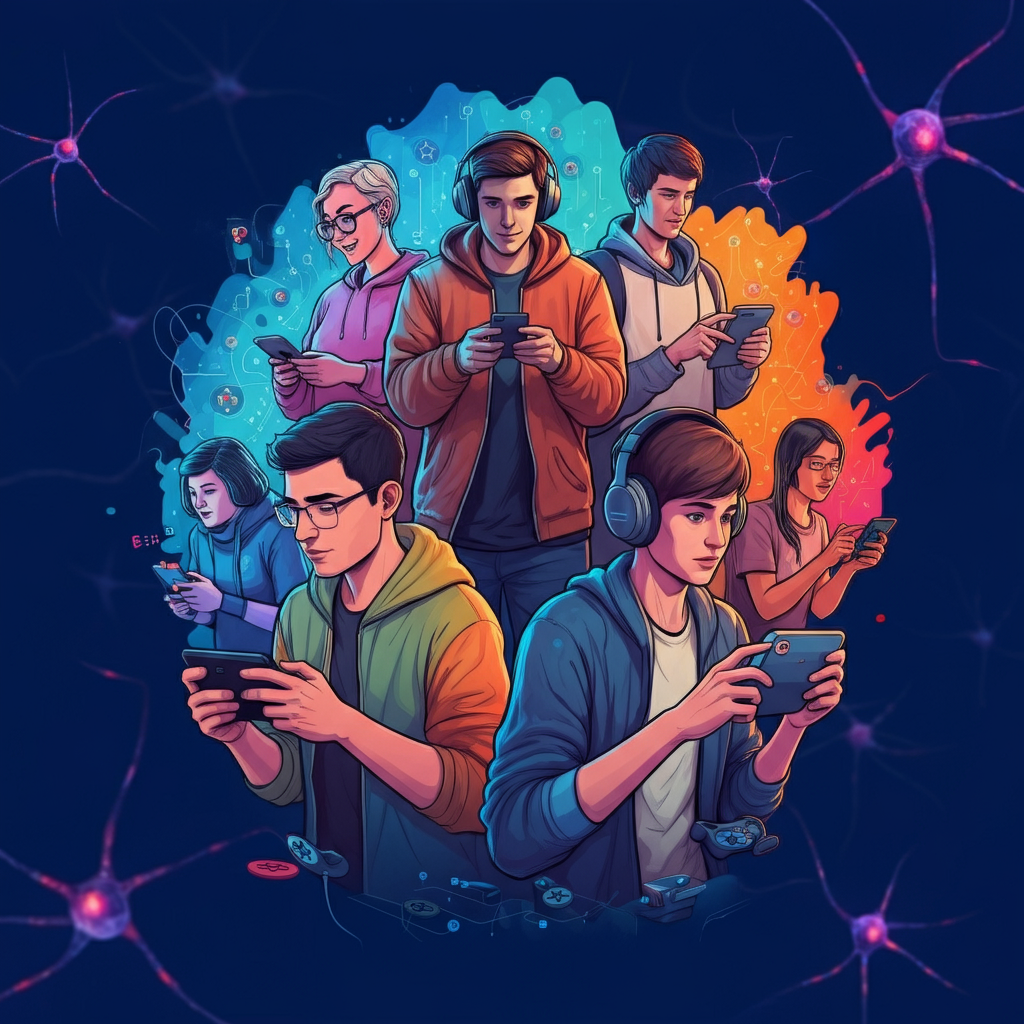Brain games are not only a great way to maintain your attention for a short period, but they are also a great way to have fun while ensuring that your brain is working optimally. These games are designed to engage your brain, improving memory, sharpening focus, and developing problem-solving skills—all while taking your mind off everything else going on in the world.
So whether you’re a gamer wanting to branch out, a student who wants to ace their classes, or simply a lifelong learner looking to keep the ol’ noggin sharp, brain games can be a fun, low-stakes way to level up your potential.
Curious to learn more? So here in this post, we explore different brain games, their benefits, and a range of options that suit your specific interests and requirements.
The Benefits of Fun Brain Games
Brain games go beyond casual fun; they provide measurable benefits to mental health and cognitive functioning. Here’s why they’re worth your time:
1. Improved Memory
Many brain games are designed to strengthen your brain’s ability to store and recall information. Regularly playing these games can enhance your short-term and long-term memory. A Harvard study found that engaging in activities requiring cognitive effort (like puzzles or memory games) could slow down memory decline over time.
2. Enhanced Focus and Attention Span
Feel like your attention span could use some work? You’re not alone. Games that require sustained focus—like Sudoku or visual puzzles—help train your brain to ignore distractions and focus fully on the task at hand. Research from the University of Cambridge resonates with this, showing cognitive training activities improve focus in just a few weeks.
3. Boosted Problem-Solving Skills
Whether you’re decoding puzzles or strategizing during an escape room challenge, brain games exercise your ability to analyze, plan, and execute solutions. These skills aren’t just fun to use; they translate into everyday decision-making in your personal and professional life.
4. Reduced Stress
While we might think of games as a source of stress (hello, video game boss battles! ), brain games often create a relaxing, meditative experience. Flow-like states achieved during strategic gameplay contribute to lower stress levels and a sense of calm.
Types of Fun Brain Games
When it comes to brain games, there’s no one-size-fits-all. Here are three diverse categories to explore, each offering its own unique cognitive challenges and benefits.
Memory Games
These games focus on improving your ability to recall information quickly and accurately.
- Classic Matching Games: Flip cards to find identical pairs.
- Lumosity’s memory matrix: Test your short-term memory by recalling patterns.
- Simon Says: A timeless classic that combines memory with dexterity.
Logic Games
Perfect for those who love to strategize, logic games challenge your brain to think critically and make calculated decisions.
- Chess: A universal favourite for logic-based thinking.
- Sudoku: Puzzle your way through numeric challenges to fill grids.
- 2048: Combine numbers strategically to reach the elusive “2048” tile.
Problem-Solving Games
If cracking codes or coming up with creative solutions excites you, problem-solving games are for you.
- Escape Rooms (digital or real-life): Solve riddles to escape in the given time.
- Portal: A sci-fi game requiring creative solutions using physics.
- Crosswords: Strengthen vocabulary and problem-solving simultaneously.
Top Fun Brain Games for Gamers
Gaming is a culture in itself, and some of the most popular titles seamlessly incorporate brain-boosting mechanics. These games make cognitive exercises feel like an adventure.
- The Witness
A visually stunning puzzle adventure game requiring critical thinking to uncover secrets.
- Civilization VI
Rule as a leader of a civilisation, making strategic and tactical decisions to expand your empire.
- Portal 2
This brain-bending classic is as fun as it is challenging, blending problem-solving with humour.
- Baba Is You
Flip the rules of the game itself in this quirky logic-based puzzle adventure.
- Keep Talking and Nobody Explodes
A cooperative bomb-defusal game requiring teamwork and effective communication.
Fun Brain Games for Students
Brain games are an excellent tool for students to sharpen academic skills while keeping learning fun. Here are some that deliver both entertainment and educational value.
For Elementary Students
- Math Blaster: Make math exciting with arcade-style challenges.
- BrainPOP Games: Cover everything from history to science in a dynamic, interactive way.
- Tangrams: A tactile puzzle game for honing geometry skills.
For Teens
- Elevate: A mobile app offering personalized language and math challenges.
- Big Brain Academy: This Nintendo classic tests memory, logic, and computational skills.
- Bloxorz: Solve spatial puzzles that demand creative thinking.
For College Students
- QuizUp: Challenge friends and improve general knowledge in various topics.
- Codenames: A social game that tests deduction skills and vocabulary in equal measure.
- Duolingo: A gamified way to learn new languages for international travel or coursework.
Brain Games for Lifelong Learners
Who says learning stops after graduation? Fun brain games keep adults cognitively engaged and mentally sharp, no matter their stage in life.
- Lumosity
A go-to platform customized for various cognitive skills like flexibility, speed, and memory.
- Brain Age (Nintendo DS)
Get assessed daily on your neurological fitness while playing relaxing puzzles.
- Elevate
Offers tailored programs that focus on articulation, writing, mental math, and more.
- Cryptic Crosswords or Solving Sites
Stay mentally nimble with challenge-level crossword puzzles online (or on your local paper!).
- Board Games (Catan, Ticket to Ride)
For puzzle lovers who enjoy group social settings, strategic board games are perfect matches.
Invest in Your Brainpower Today
No matter your age or interests, incorporating brain games into your daily routine is a simple, enjoyable way to care for your cognitive health. Whether you’re challenging your memory with Sudoku, strategising your next civilization in a video game, or simply solving a puzzle with friends, these activities make growth feel exciting, not exhausting.
Try adding just 10-15 minutes of brain games to your free time to see what a difference it makes. And don’t forget to share this post—with friends, classmates, or teammates—so everyone can enjoy the value of these fun and rewarding brain-boosting exercises.










